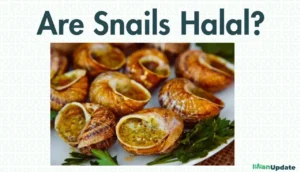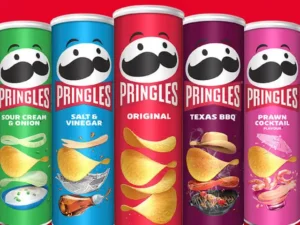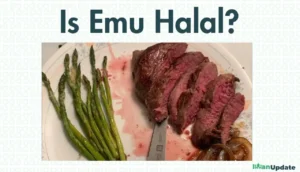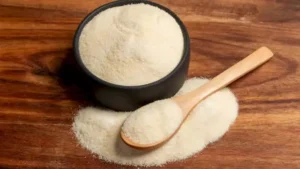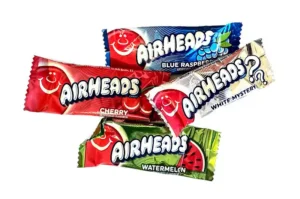Is Cocoa Butter Halal? A Complete Guide for Muslims

Cocoa butter is a natural fat extracted from cocoa beans, widely used in the production of chocolate, skincare, and beauty products. As consumers become more aware of the ingredients in their food and cosmetics, many Muslims wonder if cocoa butter is halal (permissible) according to Islamic law.
This article offers an in-depth exploration of the halal status of cocoa butter, addressing potential issues related to production, processing, and consumption.
What is Cocoa Butter?
Cocoa butter is a pale-yellow fat obtained from cocoa beans, known for its smooth texture and pleasant aroma. It is an essential ingredient in chocolates, giving them a creamy consistency. Beyond food, it is also widely used in skincare products such as lotions, lip balms, and moisturizers due to its moisturizing properties.
To produce cocoa butter, the cocoa beans are fermented, roasted, and pressed to extract the fat. This process leaves behind cocoa solids, which are used to make cocoa powder. Cocoa butter is highly stable and has a long shelf life, making it a popular choice for manufacturers.
Despite its versatility, Muslim consumers must examine not only the ingredient itself but also the methods of processing and any added substances to ensure the product aligns with halal requirements.
Is Cocoa Butter Halal?
Yes, cocoa butter is generally considered halal since it comes from a plant-based source. As a fat extracted directly from cocoa beans, it contains no animal products or intoxicants, making it permissible according to Islamic guidelines. However, the halal status of products containing cocoa butter can vary based on additional ingredients or production methods.
In food products, especially chocolates, ingredients like emulsifiers, flavorings, or dairy components may raise halal concerns. For example, lecithin, a common emulsifier, can be sourced from either halal or non-halal sources.
Similarly, if the dairy used in chocolate production is not sourced from animals slaughtered according to Islamic standards, the final product may not be halal. Cross-contamination during production, where the same equipment processes both halal and haram products, is another consideration.
Muslim consumers should look for halal-certified labels on food products to ensure compliance with Islamic dietary laws. If no certification is available, it is wise to contact manufacturers directly to inquire about the sources of their ingredients and production methods. When in doubt, it’s always safer to avoid products that do not guarantee halal compliance.
READ ALSO: Is Balut Halal? Understanding Islamic Rulings Balut
Potential Non-Halal Issues in Chocolate Production
While cocoa butter itself is halal, the process of chocolate production can introduce non-halal elements. Some chocolates include alcohol-based flavorings, such as vanilla extract, which can render the product haram (forbidden).
Additionally, some premium chocolates contain animal-based fats or enzymes used in processing, which may not be halal.
Another issue is the use of dairy ingredients, which may not meet halal standards if the animals are not slaughtered according to Islamic rules.
Certain chocolates, especially those imported from non-Muslim-majority countries, may contain gelatin, which is often derived from pork or non-halal animal sources.
For Muslim consumers, it is essential to verify the ingredients list or choose products with halal certification.
Many halal-certifying organizations ensure that not only are the ingredients halal but also that the production process complies with Islamic guidelines. Opting for chocolates produced in halal-certified facilities can help eliminate doubts about cross-contamination.
Is Cocoa Butter Halal for Skincare Products?
In addition to food, cocoa butter is commonly used in skincare products such as lotions, creams, and lip balms. For external use, the halal status of products is generally more lenient than food products, as they are not ingested.
However, some Muslims prefer to use halal-certified skincare products to avoid ingredients such as alcohol or animal-derived substances.
Alcohol is often used as a solvent in skincare, and while not all forms of alcohol are haram, many Muslims avoid it for peace of mind.
Similarly, some lotions may contain animal-based fats or ingredients derived from haram sources. If you are concerned about the ingredients in your cosmetics, look for halal-certified products or check the labels for clarity.
Most pure cocoa butter products available in stores are free from non-halal additives. Still, it is good practice to read ingredient lists carefully and choose brands that align with your religious values.
With the growing demand for halal skincare, many companies now offer products specifically designed to meet Islamic standards.
Islamic Perspective on Plant-Based Ingredients
Islamic scholars widely agree that plant-based ingredients, like cocoa butter, are halal as long as they are not toxic or harmful. Ibn Hazm (may Allah have mercy on him) explained that foods derived from plants, including fruits, grains, and oils, are permissible unless they are processed in a way that makes them intoxicating or harmful.
Similarly, Ibn al-Qayyim emphasized that the halal status of an item depends on its essence and impact, not just its label.
The Quran emphasizes the consumption of wholesome and lawful foods:
“and makes lawful for them the good things” (Surah al-A‘raf 7:157).
This highlights the importance of purity and health in permissible foods. As cocoa butter is a natural plant-based product without intoxicating elements, it falls under the category of halal, provided no harmful substances are added during processing.
Conclusion: Is Cocoa Butter Safe for Muslim Consumption?
In conclusion, pure cocoa butter is halal and safe for both consumption and external use. However, Muslims should be cautious when purchasing chocolates and skincare products containing cocoa butter to ensure that other ingredients are also halal.
Look for halal certification on food products and cosmetics, and when in doubt, contact manufacturers for more information.
With the increasing availability of halal-certified products, it has become easier to find chocolates and skincare items that meet Islamic standards. Staying informed and vigilant helps Muslims maintain compliance with halal dietary laws while enjoying the benefits of cocoa butter.
FAQs about Cocoa Butter and Halal Products
1. Is all chocolate with cocoa butter halal?
Not necessarily. While cocoa butter itself is halal, some chocolates may contain non-halal ingredients such as gelatin or alcohol-based flavorings. Always check for halal certification or review the ingredient list to be sure.
2. Can I use cocoa butter skincare products if they contain alcohol?
Yes, many scholars permit the use of alcohol-containing products for external use, as long as the alcohol is not intoxicating. However, if you prefer to avoid alcohol altogether, look for halal-certified skincare products.
3. Are there any concerns with cocoa powder?
Cocoa powder is generally halal as it is derived from cocoa beans. However, if it is used in processed products like hot chocolate or baked goods, check for any non-halal additives.
4. How can I ensure my chocolate is halal?
Look for halal-certified labels on chocolate packaging. If the product lacks certification, check the ingredient list for haram elements like gelatin, animal fats, or alcohol. Alternatively, contact the manufacturer to confirm the sources of the ingredients.
5. Is cocoa butter vegan?
Yes, cocoa butter is vegan as it is entirely plant-based. However, not all vegan products are halal, especially if they contain alcohol or cross-contamination with non-halal items. Always verify with the product label.

